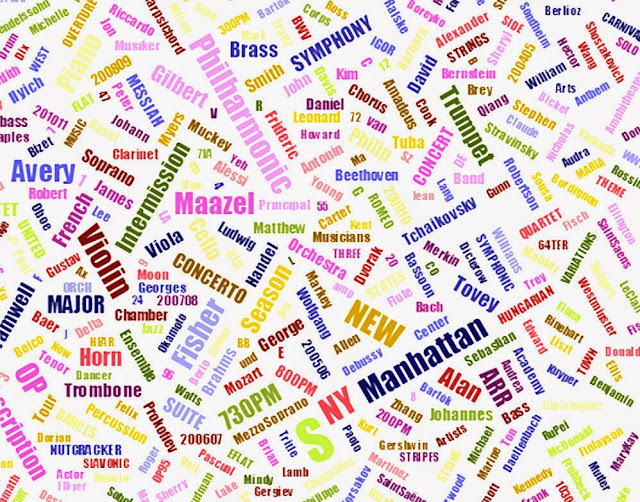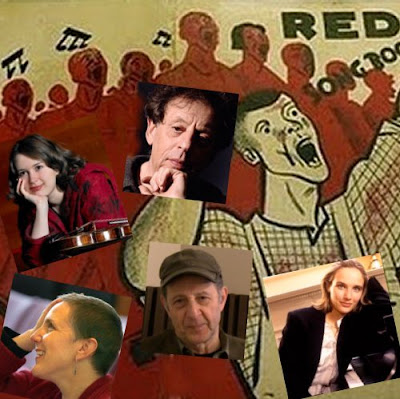The composer with a thousand faces
Kevin Scott has added this as a comment to my article about Havergal Brian, but it deserves a post to itself:
No doubt that Havergal Brian has been, shall we say, "hyped" up, but in spite of all of this, bear in mind that many of Brian's symphonies have yet to be heard in this country. I should note that Bernard Herrmann was the first American conductor to perform anything of Brian's, and that was his Doctor Merryheart Overture with the CBS Symphony in the mid-1930s when Brian was practically unknown in this country. I'm sure Herrmann was familiar with some of the early symphonies, especially when he made frequent visits to England in the 1930s and 1940s, which I feel inspired, in part, his scores to the movies "Mysterious Island" and parts of "The Battle of Neretva".In my original post I described how "the Havergal Brian mythology is celebrated and has become a pseudo-event in its right". That resonated for me with Joseph Campbell’s seminal book on the importance of mythic traditions The Hero with a Thousand Faces. So I toyed with the title The composer with a thousand faces for that post, but it did not link to the sub-agenda of pseudo-events. So I am grateful that Kevin's erudite and thoughtful comment now allows me to use that rejected title. Any copyrighted material is included as "fair use" for critical analysis, and will be removed at the request of copyright owner(s). Also on Facebook and Twitter.
That said, it would be nice if an enterprising conductor took on Brian's early symphonies, such as the epic Third with its two concertante pianos, the gargantuan fourth symphony that was inspired, in part, by Brahms' rarely-heard Triumphlied, the dark and beautiful fifth symphony for baritone and orchestra whose setting of Lord Alfred Douglas' "Wine of Summer" is very moving, the dramatic and tempestuous one-movement "Sinfonia Tragica", and the passionate and thrilling seventh symphony, his most approachable large-scale symphony, apart from his boisterous twenty-fifth symphony that is part of the wave of the later symphonies he composed in his eighties and early nineties.
Ditto the cello concerto and the Concerto for Orchestra, as well as his operas "The Cenci" and his own take on "Turandot," which I am sure is far and away different not only from Puccini's, but also Busoni's version as well. I doubt if we'll ever see "The Tigers" get mounted, but if any American orchestra or conductor wants to make a name for him/herself, they should program the "Gothic," not because it's a curiosity piece, but because they truly believe in the work's power and magnitude, structural deficiencies aside. That the press and everyone else wants to hype it up is bad enough, but a committed performance from all forces that are martialed together to bring it to the public will negate the over-excitement of the press, because it is the commitment to the music that will, in the end, win the audience over to Brian's vision.










Comments
Speaking of Brian's The Vision of Cleopatra Coleridge-Taylor told the composer: "For God's sake, Brian, go to America. Take this work, they'll worship you there, they'll never have it here. I'll get the Coleridge-Taylor Society of America to help you".